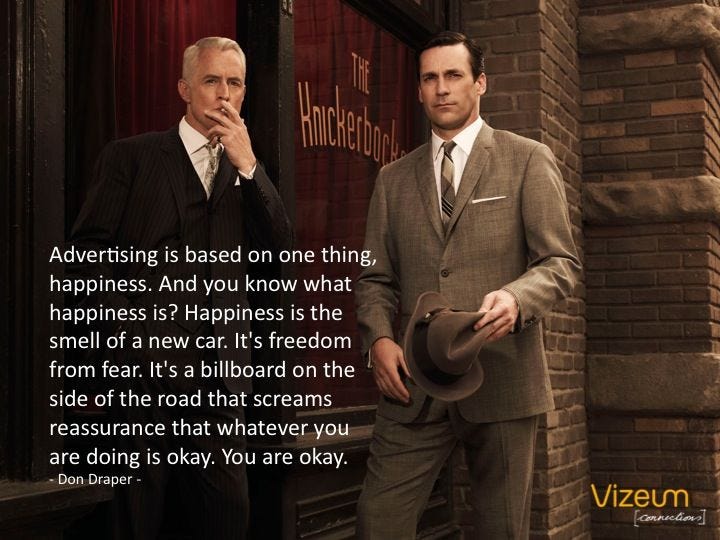The Cozy Relationship between Tech Giants and the US Military
"Don't ever trust OpenAI or its products. This is a willful, calculated betrayal of the rights of every person on Earth. You have been warned.” -- Edward Snowden
One-time or recurring donations can be made at Ko-Fi.
You can listen to me read this essay here:
BREAKING: Just as I published this, I saw the news that WikiLeaks founder Julian Assange will plead guilty in a deal with US and be freed from prison. This is incredibly good news to add to this rather dark essay.
Edward Snowden recently wrote to his 6 million followers on social media:
“They've gone full mask-off: 𝐝𝐨 𝐧𝐨𝐭 𝐞𝐯𝐞𝐫 trust @OpenAI or its products. There is only one reason for appointing an @NSAGov Director to your board. This is a willful, calculated betrayal of the rights of every person on Earth. You have been warned.”
Snowden wrote this following the appointment of retired U. S. Army General Paul Nakasone to OpenAI’s board. General Nakasone is the former Commander, U.S. Cyber Command and Director, National Security Agency/Chief, Central Security Service.
In a 2019 interview General Nakasone explained that a vital part of his job was to “actively defend against the United States’ enemies in cyberspace; conduct reconnaissance; understand where our adversary is and his capabilities; and we have to understand their intent”.
All the things he describes our enemies doing are things that tech companies are doing, too—except they are doing it to us. Such as stealing intellectual property, leveraging our personally identifiable information and attempting to influence our elections.
It’s all for a good cause, however. To keep us safe, not just from others, but from ourselves. We can no longer be trusted to think, we need AI to help us with that.
If we just take a look at elections, for example, Google owns 92% of the global search market. With a monopoly on search engines, Google can easily influence people’s voting choices. Russia is continually blamed for election interference. But who should we blame more, Russia or Google?
As we near the 2024 presidential elections we would do well to remind ourselves that a 2015 study conducted at the American Institute for Behavioral Research, found that the higher a politician ranks on a page of Internet search results, the more likely you are to vote for them. And who decides how politicians rank in search results—Google.
… elections are often won by margins smaller than 1%. If 80% of eligible voters have Internet access and 10% of them are undecided, the search engine effect could convince an additional 25% of those undecideds to vote for a target candidate…. "This is a huge effect," Epstein says. "It's so big that it's quite dangerous."
But perhaps the most concerning aspect of the findings is that a search engine doesn't even have to intentionally manipulate the order of results for this effect to manifest. Organic search algorithms already in place naturally put one candidate's name higher on the list than others. This is based on factors like "relevance" and "credibility" (terms that are closely guarded by developers at Google and other major search engines). So the public is already being influenced by the search engine manipulation effect, Epstein says. "Without any intervention by anyone working at Google, it means that Google's algorithm has been determining the outcome of close elections around the world."
Do you feel like you are being manipulated to vote for a certain candidate? Probably not. Everyone thinks they are too smart for that.
But don’t worry, Google now claims it is seeking to “educate voters about how they could be misled”, using 50 second videos to do so. Do you trust Google that it really wants you to think freely? I wouldn’t trust Google as far as I could spit.
Enormous effort has gone into researching the best ways to influence people’s desires and behavior. From “elevator music” slowing us down in stores so we buy more, to TV ads influencing us to crave certain products, to subliminal messages that we don’t even realize we are receiving, we are constantly being manipulated.
It’s all about happiness.
Of course, happiness lasts only as long as it takes to drink a can of Coke or wear that new dress to a party.
One more quote from the very sexy and suave Don Draper:
“What’s happiness? It’s a moment before you need more happiness.”
The addiction never ends, it only gets worse.
All of this constant craving started in the 1950s when advertisers and marketers identified American teenagers as a new “jackpot market”.
Companies loved the idea of capturing consumers while they were young and were willing to pay big bucks to achieve their goals. In the 1950's, teenagers represented 15 million with a spending power of over $9 billion a year in 1958, increasing to $14 billion by 1965.
Suddenly, children were powerful. They demanded their parents buy them the things they wanted. NOW.
This is a phenomenon not often talked about. But it is one of the most important changes of modern times. The power children acquired through the spending of money on products geared towards them.
Children turned into little monsters. What 5-year-old doesn’t know exactly what kind of cereal he wants to eat, and you better buy it for him.
In the US alone Gen Z now represents $360 billion in spending power. Gen Z account for 40% of consumers worldwide.
This all happened so subtly, parents lamenting the control children now had over them, that no one realized who really had the control—the companies that were now making billions of dollars by waging psychological warfare on American minds, and ultimately, the minds of the world.
According to an Oxford study:
The baby-boom generation was more likely to attend high school and college, and the U.S. became the largest consumer-oriented economy in the world. Youth consumer-spending included fashion, grooming products, cars, and sporting goods, the promotion of which in advertising led to a form of “youthful hedonism” not heretofore seen on this scale…. The new market and associated cultural effects expanded to other parts of the globe, with lasting changes in the way that youth are portrayed and considered in the modern economy.
Baby boomers are old now—between 60 and 78. Each consecutive generation has been more heavily indoctrinated than the last. In fact, children have become so indoctrinated that they’ve become walking advertisements.
You can’t find a blank shirt or a blank hat for sale anymore. They all promote some kind of movie, superhero, toy, or other product. This should not be considered normal.
But that’s not the worst of it. Manipulating children into buying products is child’s play, compared to manipulating them—and the entire world—into giving up control of their minds to AI. In our modern era, tech companies collaborate with the military to make that happen.
Thousands of contracts highlight quiet ties between Big Tech and U.S. military:
The Department of Defense and federal law enforcement agencies including Immigration and Customs Enforcement, the FBI, the Drug Enforcement Agency and the Federal Bureau of Prisons, have secured thousands of deals with Google, Amazon, Microsoft, Dell, IBM, Hewlett Packard and even Facebook that have not been previously reported.
Jack Poulson, a former Google research scientist… found that the majority of the deals with consumer-facing tech companies involved subcontracts, a relationship in which the government contracts with one company, which in turn contracts with another company… masking the depth of the ties between tech companies and federal law enforcement agencies and the Department of Defense.
“Often the high-level contract description between tech companies and the military looks very vanilla and mundane,” Poulson said in an interview. “But only when you look at the details of the contract, which you can only get through Freedom of Information [Act] requests, do you see the workings of how the customization from a tech company would actually be involved.”
Tech giants with government contracts:
Microsoft has more than 5,000 subcontracts with the Department of Defense and various federal law enforcement agencies since 2016. Microsoft boasted in a 2018 blogpost of a $19.4 million contract with ICE where its software “utilizes deep learning capabilities to accelerate facial recognition and identification” of immigrants.
Amazon has more than 350 subcontracts with the military and federal law enforcement agencies, like ICE and the FBI, since 2016
Google has more than 250 similar government contracts since 2016. One such DoD contract, Project Maven, known as the “epicenter of US’ AI military efforts, allows for Google to build artificial intelligence that tracks moving targets for drones. None of Project Maven's contracts mentioned Google at all. It was only through employee whistleblowing and investigative journalism that Google’s involvement became known.
Tech Giants Turned Ukraine into a War Lab:
Amazon collaborates with federal and local law enforcement, specifically addressing its facial recognition contracts with police and the company’s cloud services used by Palantir, which builds databases for ICE. Palantir is a data-mining firm founded with seed money from the CIA’s venture capital firm.
Named after the mystical seeing stones in The Lord of the Rings, Palantir sells the same aura of omniscience. It built its business providing data-analytics software to U.S. Immigration and Customs Enforcement (ICE), the FBI, the Department of Defense, and a host of foreign-intelligence agencies. “They are the AI arms dealer of the 21st century,” says Jacob Helberg, a national-security expert.
The controversial U.S. facial-recognition company Clearview AI has provided its tools to more than 1,500 Ukrainian officials, who have used it to identify more than 230,000 Russians on their soil as well as Ukrainian collaborators.
Palantir is used to wage war on American citizens:
Since 2012 Palantir Technologies has been in a secretive partnership with New Orleans Police, “conducting a predictive policing program, that purports to predict which people are likely drivers or victims of violence”. Because the program was termed “philanthropic”, the agreement never passed through a public procurement process.
“More than half a decade after the partnership with New Orleans began, Palantir has patented at least one crime-forecasting system and has sold similar software to foreign intelligence services for predicting the likelihood of individuals to commit terrorism.” (1)
Tech companies merging with the military is a match made in heaven—or more to the point, in hell. The military has the money, and the tech companies have the technology that they need.
Bringing former military like General Nakasone into tech companies makes perfect sense when it comes time to use what you’ve given the military on your own countrymen.
Tech Giants form Alliances Amongst Themselves to Grow Their Power
As I wrote about in How COVID turned APPLE into the Most Powerful Company in the World, Apple is the world's most valuable company by reaching a $2.8 trillion market cap. It boasts close to 2 billion customers worldwide.
Microsoft has just reached $2.9 trillion market cap; however, Apple still reigns as with the number 1 smartphone. Microsoft has 1.2 billion users worldwide.
Google (parent company Alphabet) has over 3 billion active Android devices in use worldwide. As I mentioned above, it owns over 92 percent of the global search engine market.
Then you’ve got Meta and Amazon.
All these companies are perceived as rivals, but they form alliances with each other, just as they do with the military, in order to grow their power.
Apple is busy building alliances with other tech giants:
Apple is reportedly working on an artificial intelligence partnership with Meta, according to the Wall Street Journal. Under the deal, Meta would integrate its AI capabilities into Apple Intelligence.
As part of Apple's partnership with OpenAI, ChatGPT will be integrated into iOS 18 later this year.
Apple is also working with Google on AI integration, as well as startups like Anthropic and Perplexity.
Perplexity says it is “where knowledge begins”.
Perplexity promises to answer all your questions. That’s supposed to be how AI will transform our lives. By telling us all the right answers.
But where does AI get the answers that it is giving to us? Why are we putting so much trust into artificial intelligence that is being created by the military in collaboration with tech gods like Mark Zuckerberg who are using the billions they are making off of you and me to build massive compounds with underground bomb shelters in preparation for the coming apocalypse (at least, why else would they build structures like that).
AI is being given total control over the information we receive. I don’t think this is going to make us any smarter, although that’s what they try to say. It will make our lives easier, however, and that’s very appealing to a populace that has become used to sitting passively while everything is brought to them. It is like that elevator music of the 1950s, lolling consumers into a stupor.
Edward Snowden has warned us. But then, who is he? An enemy of the state, living in exile. Where? In Russia. The country that has become our mortal enemy and that we have been told is messing with our elections.
Is there any honest American who doesn’t think the United States does the same thing—in countries all over the world? Or that the US government is doing the same thing to its own citizens?
Over and over, people shrug their shoulders and say they don’t care. After all, they are good citizens and have nothing to hide. Let the government whisper in my ear. Let it take all my thoughts.
In Permanent Record, Edward Snowden addressed this foolishness:
Ultimately, saying that you don’t care about privacy because you have nothing to hide is no different from saying you don’t care about freedom of speech because you have nothing to say. Or that you don’t care about freedom of the press because you don’t like to read. Or that you don’t care about freedom of religion because you don’t believe in God. Or that you don’t care about the freedom to peaceably assemble because you’re a lazy, antisocial agoraphobe. Just because this or that freedom might not have meaning to you today doesn’t mean that that it doesn’t or won’t have meaning tomorrow, to you, or to your neighbor – or to the crowds of principled dissidents I was following on my phone who were protesting halfway across the planet, hoping to gain just a fraction of the freedom that my country was busily dismantling.”
Because people are living more and more online, they are losing empathy with others. They take delight when those they disagree with are humiliated, lose their jobs, even imprisoned. They don’t seem to realize they could be next.
Below is a video of a mob of Islamist extremists in Pakistan burning a tourist alive. Reportedly, the mob dragged him from police station and torched him to death over alleged blasphemy of Quran.
One of the most disturbing aspects of the video is how the mob is filming the atrocity, presumably so they can share it proudly on social media—look, I was here, I participated. It will spread like the fire burning this man, to millions, perhaps billions of people, contributing to the growing worldwide mob mentality.
For the sake of security in these frightening times, people are giving up their 4th Amendment rights by allowing the government to follow their every move and listen to their every word. Before you know it, they will even give up rights to privacy in their own minds, allowing AI to live inside their heads.
At that point, humans will no longer exist. They will be something else.









“CIA’s venture capital firm…” Well that about sums up almost all of our problems in a nutshell.
AI to me represents the horrific Automation of Evil--even if some folks claim "their" use of the thing is anodyne-- it's kinda like a snake charmer with a cobra--AI is the cobra, never really kin be tamed, always able to git out an' kill--never not deadly. Why folks welcome a cobra inta their minds is beyond me (then again I lean luddite!) All Ed Snowden said is worth hearin'! (I will say Snowden has some spooky connections--why didn't they "do" him like Assange? sure, he had ta git outta Dodge, qwik but who an' what keeps 'im safe?--some think he's doin' some gate keepin'--like SO MANY others but if he shares good stuff within that gate I'll take whut I kin git). Anywhoo--he's right. The revolvin' doors round DARPA/DOD & big tech are both busy an' chilling. We ARE the enemy, it's come to that... but so few see it (durn it!)
Meantimes yer right about distractin' the masses with advertisin'--as a kiddo in the seventies I member every show was sponsored by some toy company or junk food--Hot Wheels, Barbie, Tony the Tiger (okay Paul Winchell is one'a my fave voice actors but still...). Thankfully we couldn't afford most of it an' my gran'parents that raised me had the good sense ta only git me the kinda toys like legos & tinker toys & paints 'n clay that were more timeless an' open-ended. I ended up with Barbies tho (long story but I had a generous great uncle)--refused ta git 'em for my girls since they became "sexy bimbo dolls"--even back a long ways. But put yerself in any store an' hear the kids YOWL for their toys--an' oh lordy--jus' watch when "mommy" or "daddy" takes away the toddler's phone or tablet or whatever they gaze into like they wuz hypnotized---by the AI cobras!
I'm not fully against tech--I liked my electric IBM Selectric typewriter better 'n the ol' manual Royal an' I wish ta god I kept the thing ('puters are a dang distraction). But this AI stuff, the smart phones--I'll have none've it b/c I think it's far more dangerous than electrics which ain't the same as "electronics"--I do believe all that nintendo, pacman, etc. was a lure an' too many young'uns bit! Now they're literally---hooked. (Kin we unhook-em? okay it's not only the young now--I know ADULTS that are sucked inta them worlds...skeery stuff indeed!)